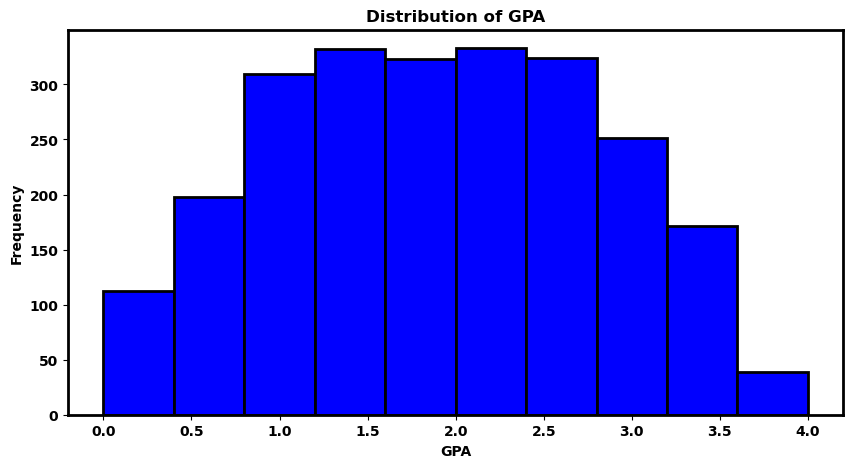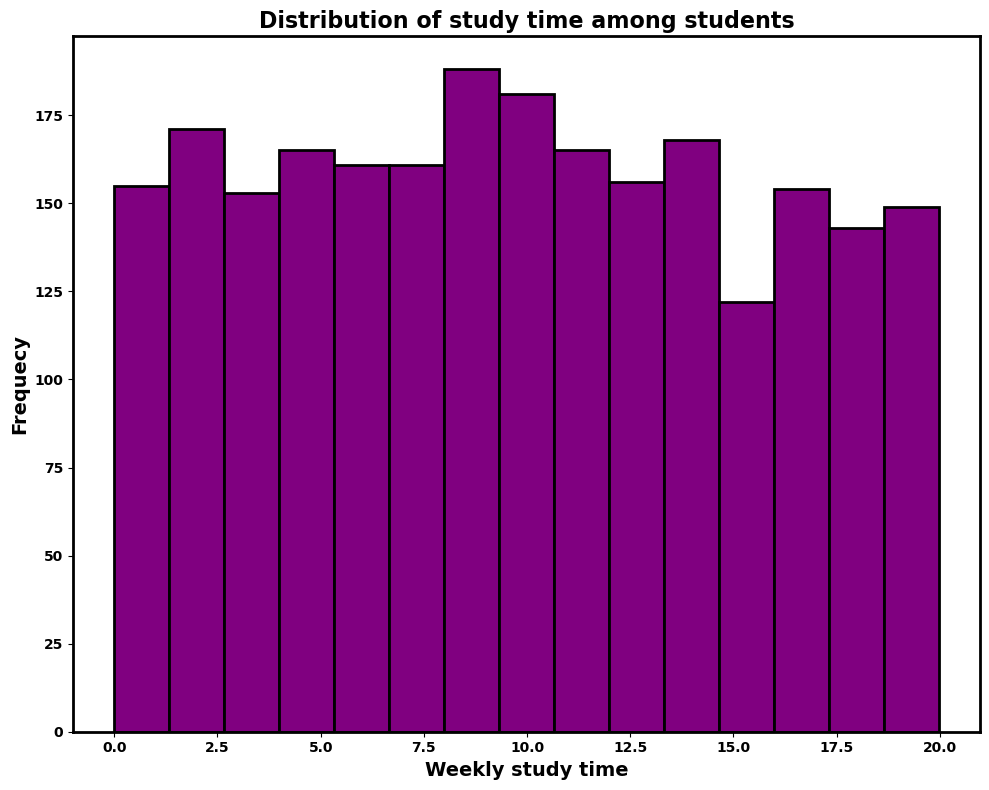This project analyzes factors influencing student performance using a dataset sourced from Kaggle. The goal is to identify key determinants of academic success and suggest interventions to enhance student outcomes.
The dataset contains information on 2392 students, including:
- Demographic factors: Age, gender, ethnicity, parental education
- Academic performance: Study time, absences, final grade
- Extracurricular activities: Tutoring, parental support, extracurricular participation, sports, music, volunteering
Our analysis revealed several key findings:
-
GPA Distribution:
- Student GPA exhibits a right skew, indicating more students achieve higher GPAs.
-
Gender and GPA:
- The average GPA for male students is slightly higher than for females (1.92 vs. 1.89).
-
Parental Education and GPA:
-
Absences and GPA:
-
Study Time Distribution:
-
Study Time and GPA:
- There's a weak positive correlation (0.179) between study time and GPA, suggesting a slight increase in GPA with more study time.
- Parental Education and Weekly Study Time: Strong predictors of student success.
- Absences: Have the most significant negative impact on academic performance.
Based on these findings, we recommend:
-
Support Programs for Students with Low Parental Education Backgrounds:
- Implementing academic and mentoring support programs to help bridge the educational gap.
-
Strategies to Improve Attendance:
- Developing policies and interventions to reduce student absences, given their strong negative impact on GPA.
-
Encouraging Increased Study Time:
- Offering resources and programs to support and encourage students to increase their study time, particularly for those studying less than 3 hours weekly.
This project serves as a starting point for further investigation into student performance factors. Future work could involve building predictive models or analyzing additional datasets to gain deeper insights.



